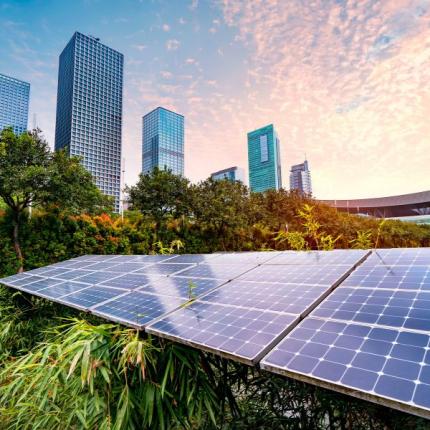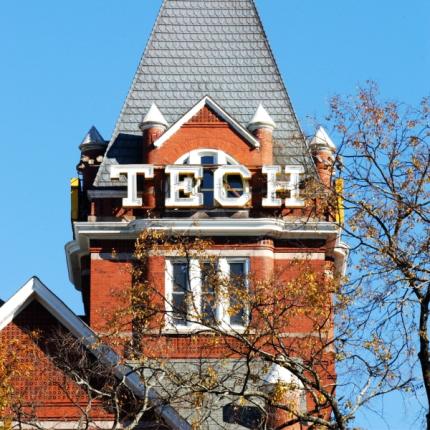Energy and environmental economics is a central research area in Georgia Tech's School of Economics. The new Climate, Environmental, and Resource (CLEAR) Economics Lab brings together six faculty members and many Ph.D. students working in the field.
"In many other economics departments, there might be one environmental economist, or two to three would be a lot," said Associate Professor Casey Wichman. "Having six faculty squarely in energy or environmental economics is notable."
The group formed the CLEAR Lab "to capture the work we're already doing and make it more visible," said Bobby Harris, an assistant professor who’s part of the lab. With weekly lunches and the annual Southeastern Workshop on Energy & Environmental Economics & Policy, the hub helps students and collaborators connect to ongoing research, form a community, and increase the impact of their work.
Research Themes
Researchers in the CLEAR Lab use data-driven insights to inform their work. They collaborate with businesses, policymakers, and local organizations – such as the U.S. Environmental Protection Agency (EPA), the Atlanta Regional Council, and the Georgia Public Service Commission – to study real-world issues and make a difference. Research themes include:
Equitable Access to Resources: Harris, Wichman, and Ph.D. student Akif Aglar use tools more common in labor economics to examine why people of different races pay more or less for energy in the U.S. and how those gaps have decreased over time. The EPA also recently cited Wichman's water affordability research in a report to Congress.
Climate and Environmental Policy: Faculty members Laura Taylor, Dylan Brewer, and Daniel Dench received a grant from the EPA to measure how pollution impacts student test scores in schools near highways versus those further away. Their colleague, Matthew Oliver, analyzed the solar rebound effect, where households use more electricity after installing solar panels.
Infrastructure and Technology: Gaurav Doshi examines supply-side energy transmission and the value of investing in new energy infrastructure, while Harris uses generator sales data to calculate how much households are willing to pay for energy reliability. Wichman and Ph.D. student Emtiaz Hossain Hritan are evaluating the effect of Uber on public transit ridership, where they find sizable declines in bus and rail ridership when Uber arrives in new cities.
Why Environmental Economics at Georgia Tech?
Economics is a powerful way to tackle environmental issues because it combines theory and data science to find practical solutions, Harris said.
"Economists want to balance the trade-offs of pollution or emissions reductions with the cost of doing so," Wichman added.
"Environmental problems exist because there are unpriced consequences to many economic activities. If we can set up markets to put a price on those negative outcomes, then we can address them."
Meet our economics faculty and Ph.D. students, learn more about the CLEAR Lab, or get involved with the new minor in the Economics and Policy of Environmental Sustainability.




